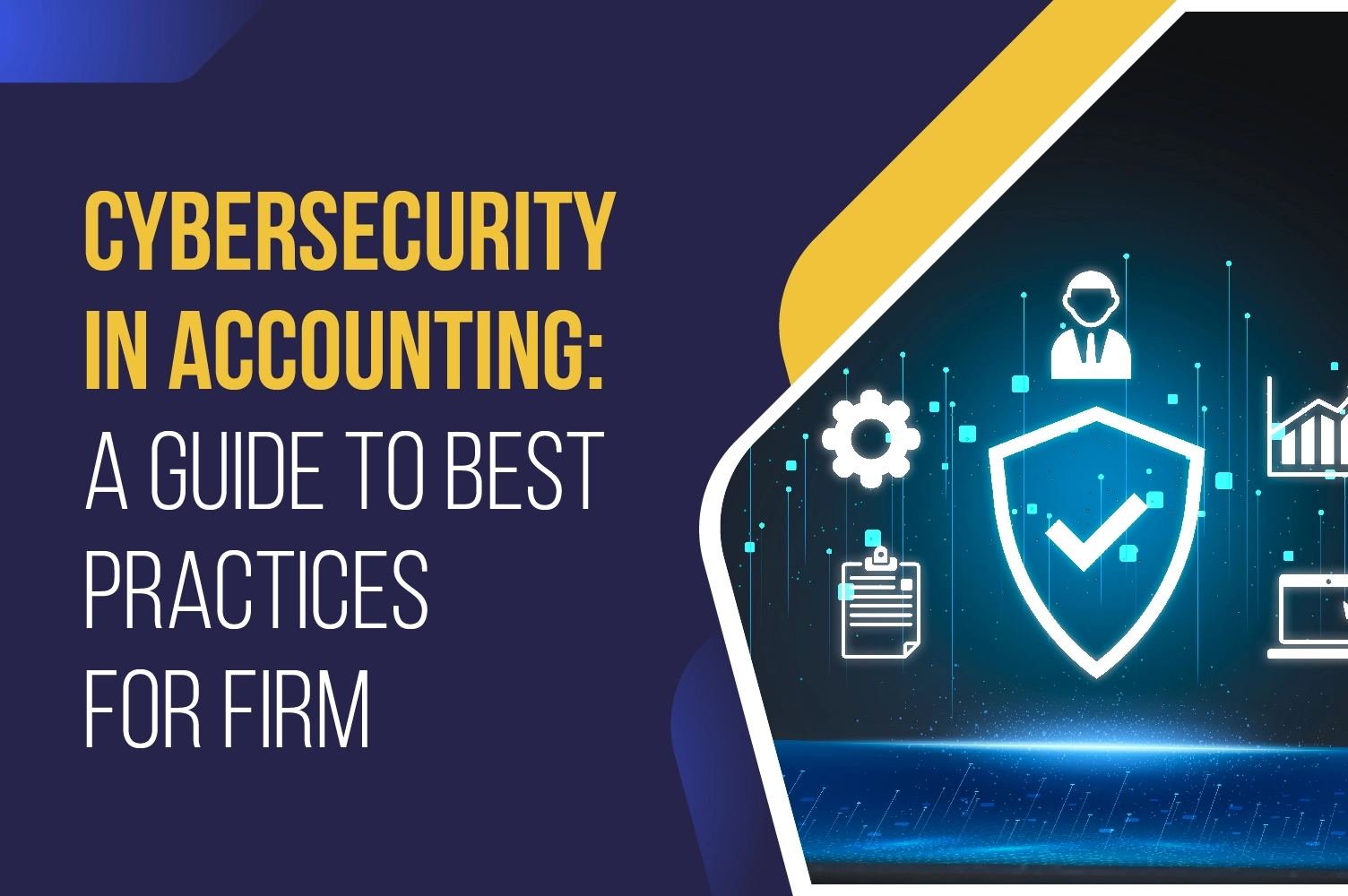Accounting Firms: HOW TO SET UP REMOTE OFFICE IN A HURRY?
Once that started like a spark and now has turned into a raging wildfire all over the globe; Coronavirus has taken over every headline, everywhere. China has essentially been shut down for most of this year. Italy is now under a nationwide quarantine, New York is under containment zones, President Trump is banning travel from Europe, stock market averages are down about 20% in the last few weeks, the NBA suspended indefinitely (maybe until next season!). Each day seems to have a new story that is causing more and more panic.
Many of us are currently quarantined or spending countless hours inside our homes, working and adjusting to a virtual work style. Businesses across the U.S. and the world have swiftly changed their policies to deal with the crisis. Working remotely becomes a second nature to those who do it all the time, however, for a large number of CPAs, accounting firm owners and partners, this situation has also brought the inevitable question - HOW TO SET UP REMOTE OFFICE IN A HURRY?
- Keeping the client informed - Don’t assume that they’ll assume. Everyone is facing this crisis together, so be transparent about what your business is going through. Customers can empathize with brands and businesses facing a crisis, as long as you communicate with them properly. Describe the steps you’re taking to mitigate risks and give them insight into the steps you’re taking to help the community.
- Keep everyone posted - It’s important to share the slightest update with all the stakeholders connected to the organization. Use various creative methods to communicate the situation with them. Use email, texts, website pop-ups, auto replies or even a special section in blogs to give them an update. Keeping your employees informed about all the development happening in your organization, even the ones who are remote employees or offshore staff.
- Setting up an all-digital workflow - In the time when none of the employees would be turning up to office, a workflow system facilitated by technology can generate positive results, provide analytics and indicate employee compliance. Streamlining remote employees workflow can start with an automated system that reduces tedious and time-consuming tasks. Look for technology that integrates easily with employee work styles. For example, a project management system that includes real-time chat can help employees to stay on top of tasks, share files and remain connected to peers. Some examples include Slack, Asana and Trello.
- Secure communications and data sharing - ‘Now is the time when viruses are dangerous, both physically as well as digitally’. Sharing files over emails isn’t the most secure way. Emails containing financial information are constantly on the radar of phishing agents, for obvious reasons. Therefore, trust on giving remote access to the employee. They can remotely access, manage and work on devices from anywhere, anytime. All work can be monitored and it will be like your data never left your office. Use any software app such as TeamViewer, LogMeIn or AnyDesk. Another way to do this is by setting up VPN (Virtual Private Network) to login to your cloud software, where you can stay secure and anonymous anytime you go online. Always insist on having an HTTP SSL portal to exchange encrypted messages.
- Check equipment - For business operations to run as smoothly as possible off-site, you’ll need to make sure your employees have the right equipment, such as laptops, chargers, headsets, monitors, phones, etc. Will your employees be able to access shared drives and shared files from home? If not, it’s time to have a chat with your IT person to make sure everyone is set up with that capability. Prioritize security - Be sure to let employees know how you expect them to keep information secure when working from home. It’s critical to set clear expectations for private and public internet connections, the storage of digital files and their privacy. It's always better to provide a secured work setup to the employees instead of BYOD.
- Prioritize security - Be sure to let employees know how you expect them to keep information secure when working from home. It’s critical to set clear expectations for private and public internet connections, the storage of digital files and their privacy. It's always better to provide a secured work setup to the employees instead of BYOD. It’s also a good idea to ensure having an up-to-date anti-virus software supported by multi-factor authentication (MFA), which requires additional verification for logging in and makes it more difficult for hackers to access the computers.
- Do a trial run - ‘Your foresight should be sharper than your eyesight’. Instead of waiting until telecommuting becomes a necessity to discover potential problems, try asking your employees to work from home for a day or two to test things out. “Have your employees flag issues like difficulty accessing documents due to network or security issues, internet disruption and communications challenges. Tackle these issues immediately so you’re ready in case of an emergency. Consider offering training so that everyone is comfortable using whichever tool you choose.
- Building a culture within the team - Encourage social distancing, not cultural isolation. The person working for you remotely is as much the same member of your team as he/she was a week ago. Remote teams need your trust and that can be inculcated by regular communication. Provide your staff with the required technology, IT support, implement communication programs with more emphasis. Hold regular check-ins via video or phone calls and set the expectations clear about the ongoing remote working situation. Video meetings have become a very common way to interact now. Use this method to speak with not just your employees but also your clients.
- Be flexible: Even if you do have a plan for normal remote working (work from home), things are going to be a lot different now. Schools across the country are closing, as are offices, stores, businesses and commercial centers. With the country slowly moving toward total lockdown, you will need to be flexible with your employees’ time. Some team members may have to leave unexpectedly if their child’s daycare closes. Try to be as understanding as possible when something comes up and have a contingency plan in case you suddenly become short-staffed. Your offshore staff is also just like your own staff and they are also facing the same threat as the local ones. Therefore it would be a good idea to consider providing some flexibility to them as well.
- Plan for the long term - Your troubles don't just end as soon as your remote working model is up. It is not certain how much time is going to take for the whole world to recover. Amidst all this, developing economies like India have put a complete lockdown for 3 weeks, which is perhaps for the better for her people and workforce but in the meantime, speak to your suppliers, investors, offshoring partners and local officials on a daily basis to learn how you can start to implement safeguards that will help you stay above the red while officials work to contain COVID-19. It might be a while until your small business gets back to business as usual.
- Conduct regular virtual happy hours: Virtual Happy Hours are just the equivalent of virtual team retreats. In the times when the pandemic has forced a large number of accounting firms to move completely indoors, there is indeed a need to keep the team bonded. When people work in teams, not everything they talk about is related to work. It should not seem that people are missing all the fun away from the office. Therefore virtual happy hours have been on a rise, where people just bring in their own cocktail and join everyone to share some light moments, hacks about spending your time indoors and other ideas that work as refreshers during the days of isolation. Virtual Happy Hours are just the equivalent of virtual team retreats.
As the coronavirus incites fear and anxiety across the nation, major companies such as Google, Apple and Microsoft are making headlines for encouraging employees to work from home due to concerns about the virus spreading. With the number of coronavirus cases on the rise, it’s wise for businesses of all sizes to consider creating an emergency work-from-home policy to ensure that workers, including the people from the offshore teams, can still get their jobs done if telecommuting becomes the safest option. For opinions or free consultations, I can be reachable through my email shawn@entigritysolutions.com
Entigrity™ is a trusted offshore staffing partner to over 500+ accountants, CPAs and tax firms across the US and Canada. Our flexible and transparent hiring model gives helps firms of all sizes to hire staff for accounting, bookkeeping, tax preparation or any other task for 75% less cost. As a firm 'run by accountants, for the accountants', Entigrity captures the hiring needs of accounting firms most precisely, providing staff that works directly under your control and management, still you are left with least to worry about compliance, payroll taxes, overheads or any other benefits.





